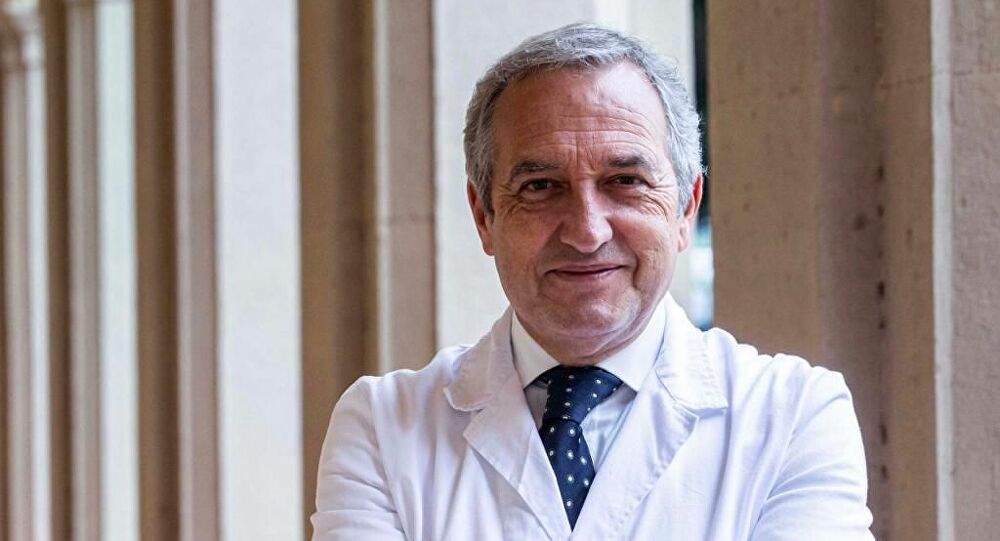Infectiologist Vaia (Spallanzani): reopen museums and theaters, as we do churches
It is not only the world of culture that is calling for the reopening of cinemas and theaters, almost exactly six months after their closure (last Oct. 25) due to restrictions imposed by the government to contain the Covid-19 contagion: the pro-reopening voices of cultural venues have now been joined by that of Francesco Vaia, medical director of the National Institute of Infectious Diseases at Spallanzani in Rome. Interviewed the day before yesterday by Giusi Legrenzi and Enrico Galletti on the program Non Stop News on RTL 102.5, Vaia said that cinemas, theaters, museums, and music can be opened just as churches are.
Vaia’s idea is that citizens should be rewarded for the sacrifices they have made. This is the premise: “President Draghi,” said the infectiologist, “gives us this so reassuring news that by July millions and millions of doses will arrive...it will be so, let’s wait. The roads, as I have already said, and I want to reiterate it, are three: vaccines, innovative therapies (starting with monoclonal antibodies that will go a long way that will help us a lot), and our ability to overcome this depressed phase. We need to put in a lot of strength and a lot of courage, but also a lot of determination to still apply the rules. What I see is an oscillation, which worries me at times, between the darkest pessimism and sometimes even somewhat unmotivated optimism. We need to regain some balance. We need to vaccinate people because we have understood and verified that vaccination first and foremost reduces mortality, which is the figure we are concerned about, drastically reduces even if not completely reduces infection. However, as people continue to observe the rules and make sacrifices, we have to provide opportunities for rewards, because the third weapon is our courage, our strength, but also our hope. And then we have to acquire reward spaces.”
And this is where the talk about reopenings comes in. Vaia is not for scriptural openings, but he is convinced that spaces of culture can be opened, as we do with churches. “We have to get to issues of reward,” he reiterated, “and avoid having a free-for-all that then sets us back. There is no need to chase. Now I find people who used to want everything always closed and suddenly have become great openers. This pendulum swing, without placing oneself in a median path, is a mistake and I would like to avoid it. However, we must have a peaceful summer. I say how we need to get back to open everything: I was at Mass on Sunday morning, it was a Mass in a pre-arranged church, with reservations, a fairly full church but with precise spacing, sanitizing of hands at the entrance, family groups, handled perfectly. I wonder if we can’t or shouldn’t do the same to gratify our spirit as well, get back to breathing culture, cinema, theater, music, museums.”
To Galletti’s question (“would you reopen the cinemas and theaters after Easter?”), Vaia replied as follows, “In the conditions in which the churches were kept open I would keep the cinemas and theaters open at this point: better to do a hundred performances instead of twenty and allow everyone access.”
Vaia also had an opportunity to speak on the Sputnik vaccine: “I would avoid political instrumentalism that does not belong to me and does not concern me. We at Spallanzani are doing an in-depth study putting science at the center, then those who make policy will do their part, and we do not want to surrogate decisions, but those who have to decide do so and do it soon. We will make sure, through the exchange of biological material, to see if Sputnik is able to protect us compared to the variants we have in Europe and Italy. I have to say that there is an attitude of great understanding, as can only happen between men of science: the Russian colleagues are very willing to question themselves, to question their data to verify it with us, with an exchange of data and professionals (they will come here and we will go there: science is at the center of the debate to make sure that we move forward soon and fast, we cannot delay).”
Finally, the medical director of the National Institute of Infectious Diseases at Spallanzani reserved his conclusions for the durability of antibodies and, again, the issue of reward: “Antibodies last approximately six months: it is an experiential data that will then have to be verified, but in the scientific publications we talk about protections ranging from nine to 12 months in double dose (some are thinking about the single dose that lasts six months just to get ahead, because we need more doses). We will probably test this when the vaccination is completed, with another campaign we have to start, of serology. Today no one has the truth in their pocket, I am always afraid of assertive statements: we imagine nine to 12 months, but this has to be verified. However, it will not be a drama, something we have to worry about, because we are and will be able to break down barriers. That’s why I come back to the prize: we have to reverse the communication (okay the daily litany of infected and the dead), but today we have to put hope and confidence, I am most concerned about depressions, self-harm. You media must help us.”
 |
| Infectiologist Vaia (Spallanzani): reopen museums and theaters, as we do churches |
Warning: the translation into English of the original Italian article was created using automatic tools. We undertake to review all articles, but we do not guarantee the total absence of inaccuracies in the translation due to the program. You can find the original by clicking on the ITA button. If you find any mistake,please contact us.





























